A Look at the Hourly Rates of Freelance Designers and Developers
Freelancers often struggle with how to price their services. There are many sites that offer salary data for full-time employees, but none that do so for freelancers.
We’ve managed to collect data about freelance hourly rates over at Bonsai, and we wanted to make it public, so we built Rate Explorer to make it easy for people to see our data on how much freelance designers and developers charge by the hour.
We obtained the data from among the 15,000+ freelancers that use our app. We supplemented it with user research surveys, and that added another few hundred data points.
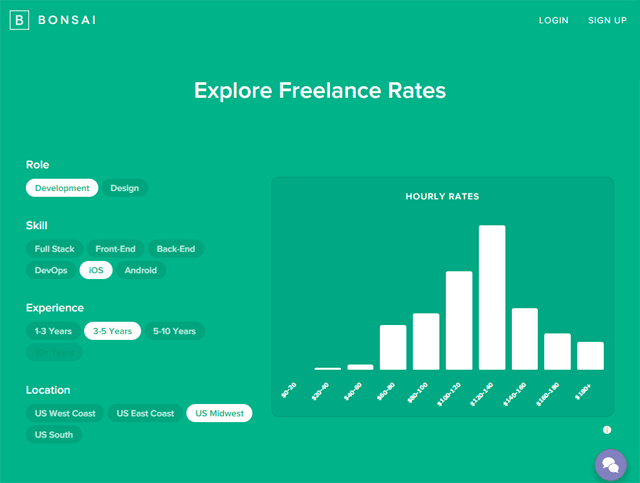
Currently, we only have data from freelancers operating in the U.S. Once we gain a critical mass of hourly-rate data for other countries, we will share those as well.
Interesting Trends
We spotted some noteworthy trends by analyzing the data.
Developers earn 30% more than designers.

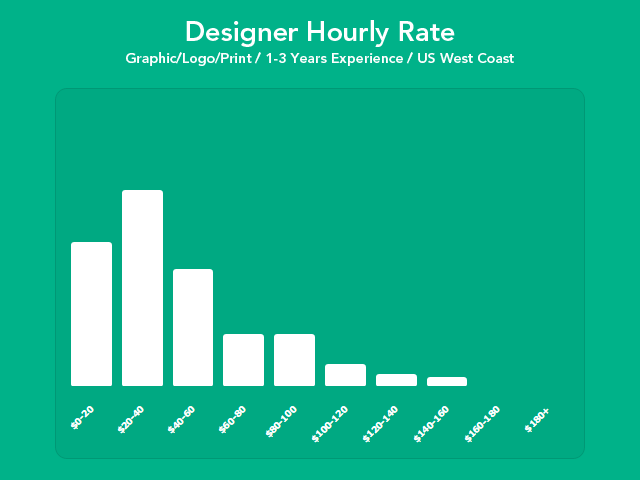
The hourly rates of designers (especially graphic designers) remain sticky at under $60 an hour at all geographies and experience levels.
In addition, whereas developers quickly begin increasing their hourly rates after gaining 3 years of experience, designers tend to increase their hourly rates at a slower pace.
Read: Why Designers Should Learn How to Code
The most common explanations we’ve heard for this trend are:
- Design is a very competitive field
- Lower barrier to entry for some types of design
- Typically smaller project sizes
Freelancers in the Coastal regions have higher hourly rates than those in the Midwest and the South by an average of ~10%.
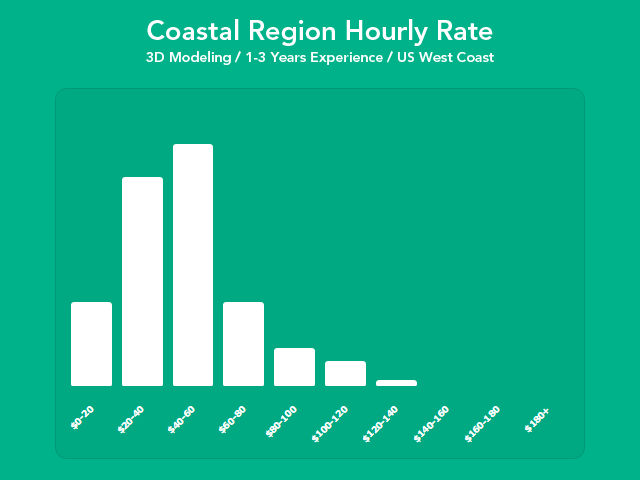
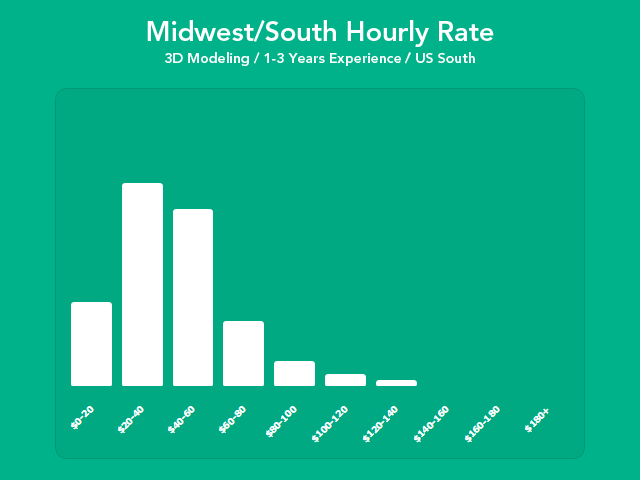
Freelancers in the West Coast and East Coast generally have higher hourly rates compared to freelancers based in the Midwest and South.
This trend was surprising to us because freelance design and dev jobs can easily be done remotely, so it would be reasonable to think that a freelancer’s location would not have a whole lot of influence in his/her hourly rate. The difference might be linked to the higher living costs in coastal regions, which in turn might necessitate higher hourly rates, — but this is just speculative.
Read: The Best Sites for Finding Remote Work
The biggest increase in hourly rates happens when freelancers reach 3–5 years of experience.
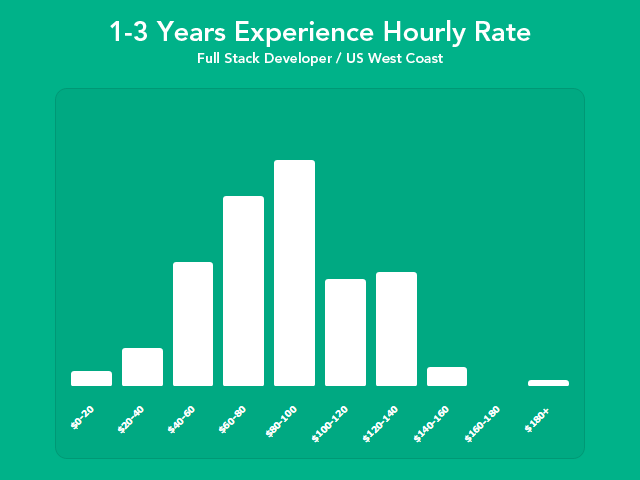
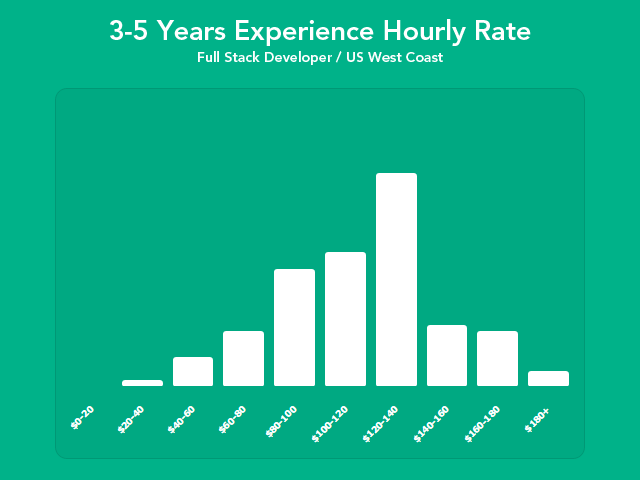
Across all skill types and geographies, freelancers significantly increase their hourly rates when they gain 3–5 years worth of experience.
Having spoken to some of our users, we’ve learned that this trend can be attributed to:
- Learning core business skills like negotiation
- Building a network of recurring and trusted clients
- Establishing a strong portfolio
Read: Three Simple Steps to Maintaining a Razor-Sharp Skill Set
What This Data Can Mean for You
Pricing can be a complicated subject, and many factors should go into pricing your work. The Rate Explorer is most valuable as a directional indicator. Are you above, below, or within the average for similar freelancers?
Read Next
7 Simple Ways to Raise Your Rates and Keep Your Clients
Making Money Designing Themes: What You Should Know
How I Earned A Lot More on Projects by Changing My Pricing Strategy
5 Tips for Making More Money as a Freelance Designer
The post A Look at the Hourly Rates of Freelance Designers and Developers appeared first on WebFX Blog.
